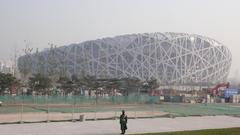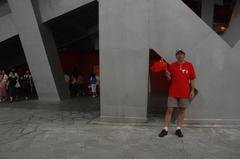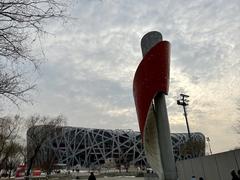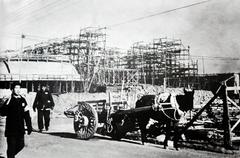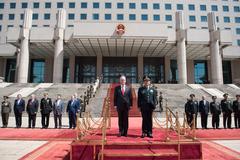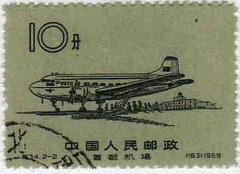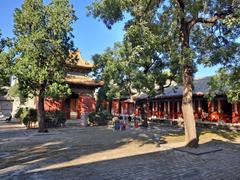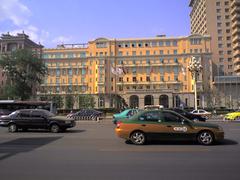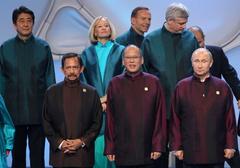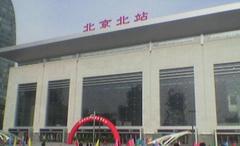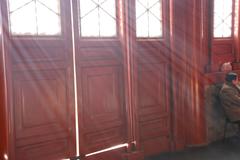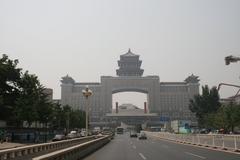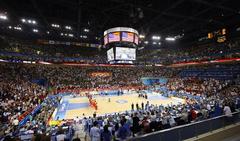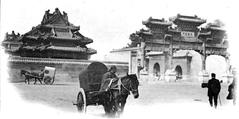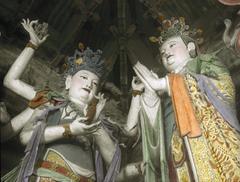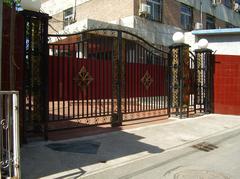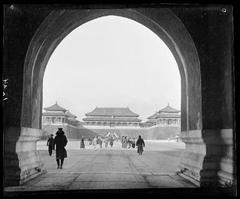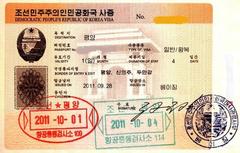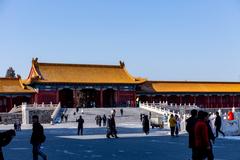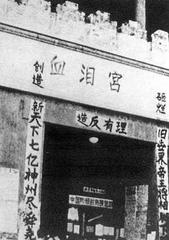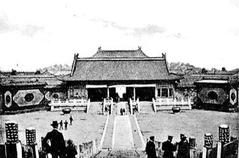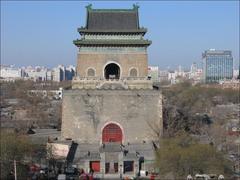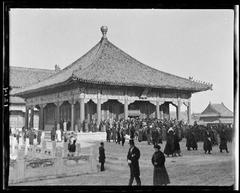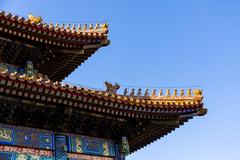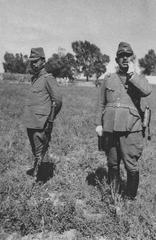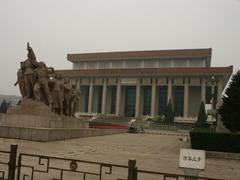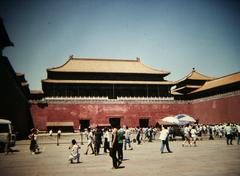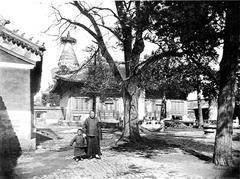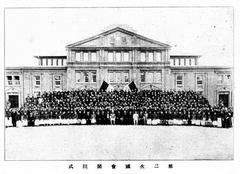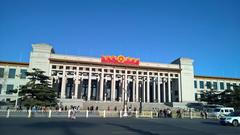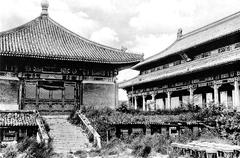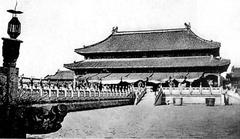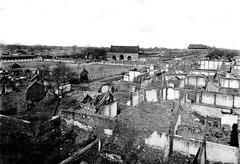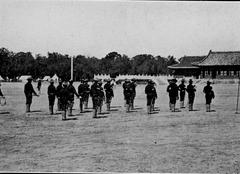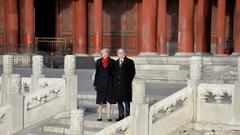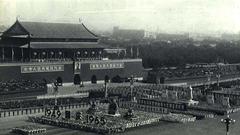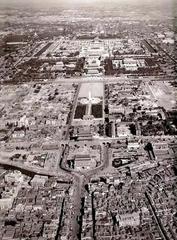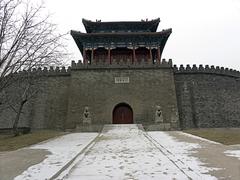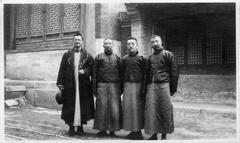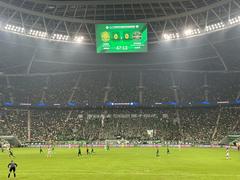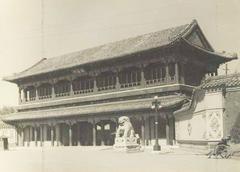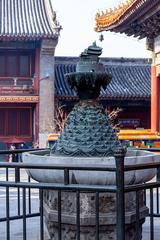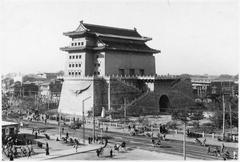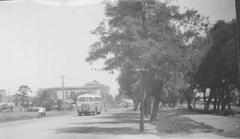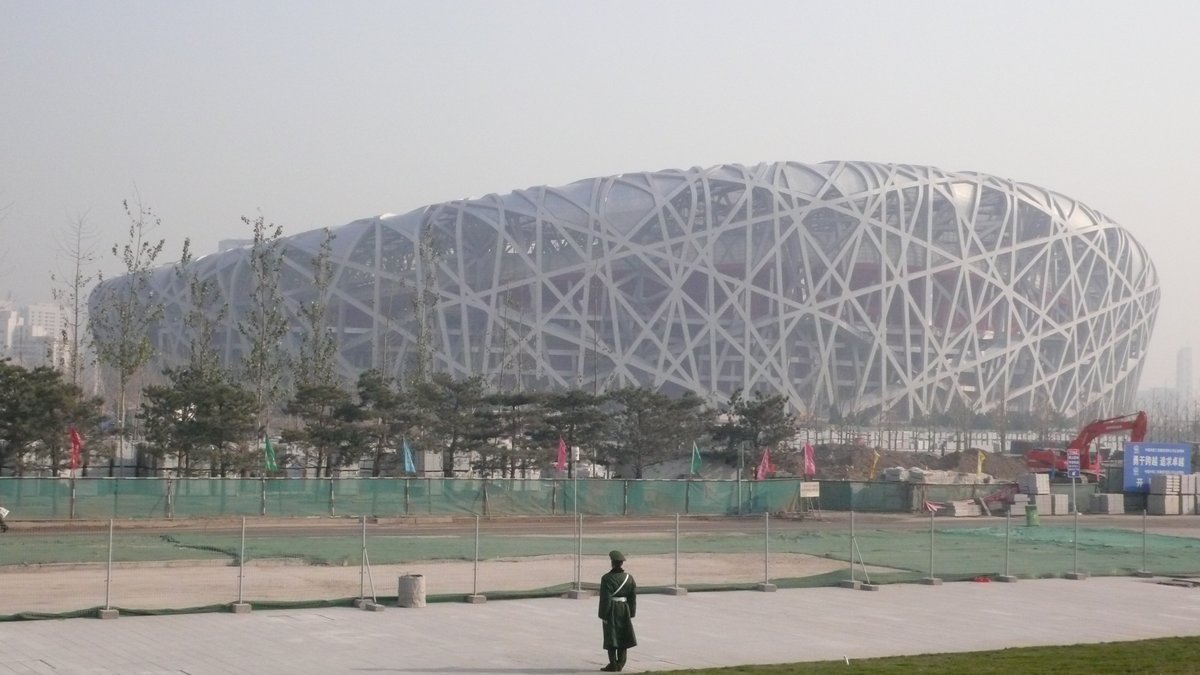
Visiting Hours and Tickets for Beijing National Stadium
Date: 17/08/2024
Introduction
The Beijing National Stadium, commonly known as the “Bird’s Nest,” is one of the most iconic architectural marvels in modern China. Erected as the centerpiece for the 2008 Summer Olympics, this stadium is a testament to China’s innovative engineering and architectural prowess. Designed by the renowned Swiss architectural firm Herzog & de Meuron in collaboration with the China Architecture Design & Research Group and artist Ai Weiwei, the Bird’s Nest stands out for its unique lattice structure composed of 42,000 tons of steel (chinatripedia.com). Its intricate design, resembling a bird’s nest, symbolizes cradle and nurturing, reflecting both strength and unity (britannica.com).
Since its grand opening, the stadium has not only hosted the spectacular opening and closing ceremonies of the 2008 Summer Olympics but has also continued to serve as a versatile venue for various sports events, concerts, and cultural performances. It has even made history by being the first stadium to host both the Summer and Winter Olympics’ opening and closing ceremonies (kidadl.com).
Today, the Bird’s Nest attracts millions of visitors annually, making it a must-visit landmark for anyone traveling to Beijing. This comprehensive guide aims to provide you with all the essential information you need to make the most of your visit to the Beijing National Stadium, covering its history, ticket information, visiting hours, travel tips, and nearby attractions.
Table of Contents
History of Beijing National Stadium
Conception and Design
The Beijing National Stadium was conceived as part of Beijing’s bid to host the 2008 Summer Olympics. The design competition for the stadium was won by the Swiss architecture firm Herzog & de Meuron, in collaboration with the China Architecture Design & Research Group and renowned artist Ai Weiwei. The design, selected for its innovative and striking appearance, resembles a bird’s nest, symbolizing cradle and nurturing.
Construction and Engineering
Construction of the Bird’s Nest began in December 2003 and was completed in March 2008. The project faced numerous engineering challenges due to its unique design. The stadium’s structure is composed of 42,000 tons of steel, making it one of the largest steel structures in the world. The intricate lattice design not only serves an aesthetic purpose but also provides structural support. The stadium covers an area of 258,000 square meters and initially had a seating capacity of 91,000, which was later reduced to 80,000 after the Olympics.
2008 Summer Olympics
The Bird’s Nest gained international fame during the 2008 Summer Olympics, serving as the main venue for the opening and closing ceremonies, as well as track and field events. The opening ceremony, directed by Zhang Yimou, was a spectacular display of Chinese culture and technological prowess, watched by an estimated 4 billion people worldwide. The stadium’s design and the grandeur of the events held there left a lasting impression on both participants and spectators.
Post-Olympics Usage
After the 2008 Olympics, the Bird’s Nest continued to serve as a multi-purpose venue. It hosted various sports events, including football matches and athletics competitions. The stadium also became a popular venue for concerts and cultural events. In 2015, it hosted the World Athletics Championships, further cementing its status as a premier sports venue.
2022 Winter Olympics
The Bird’s Nest once again took center stage during the 2022 Winter Olympics, hosting the opening and closing ceremonies. This made it the first stadium in the world to host the ceremonies of both the Summer and Winter Olympics. The stadium’s ability to adapt to different types of events showcased its versatility and enduring significance.
Recent Developments
In recent years, the Bird’s Nest has continued to evolve as a cultural and sports hub. According to a recent report, the stadium has hosted approximately 100 cultural and sports events over the past two years, attracting more than 3 million visitors. The venue is set to host nearly 30 top international events and concerts in 2024, with some bookings extending to 2026. This increase in events highlights the stadium’s ongoing relevance and its role as a top-level international competition platform.
Architectural Significance
The Bird’s Nest is not just a sports venue; it is a masterpiece of modern architecture. Its design has been praised for its innovation and aesthetic appeal. The stadium’s structure, with its interwoven steel beams, creates a sense of movement and dynamism. The use of steel and the open lattice design also allow for natural ventilation and light, making it an environmentally friendly structure. The Bird’s Nest has received numerous architectural awards and is considered a landmark in contemporary architecture.
Cultural Impact
The Bird’s Nest has become a cultural icon in China and around the world. It is a symbol of China’s emergence as a global power and its ability to host world-class events. The stadium has also become a popular tourist attraction, drawing visitors from around the globe who come to marvel at its design and learn about its history. The Bird’s Nest has been featured in numerous films, documentaries, and publications, further enhancing its cultural significance.
Visitor Information
Ticket Information
Tickets for visiting the Bird’s Nest can be purchased online or at the venue. Prices vary depending on the type of access and events. It’s advisable to check the official website for the latest pricing and availability.
Visiting Hours
The Beijing National Stadium is generally open to visitors from 9:00 AM to 5:00 PM. However, hours may vary depending on scheduled events, so it’s best to confirm beforehand.
Travel Tips
The stadium is located at 1 Guo Jia Ti Yu Chang Nan Lu, Chao Yang Qu, Beijing, China, 100101. It is easily accessible by public transportation, with several bus and subway lines serving the area. For those traveling by subway, the nearest station is Olympic Sports Center Station on Line 8.
Nearby Attractions
While visiting the Bird’s Nest, you can also explore nearby attractions such as the Beijing National Aquatics Center (Water Cube), the China Science and Technology Museum, and the Olympic Forest Park.
Accessibility
The Bird’s Nest is equipped with facilities to support visitors with disabilities, including ramps, elevators, and designated seating areas.
Special Events and Guided Tours
The stadium offers guided tours that provide an in-depth look at its design and history. Special events such as concerts, exhibitions, and sports events are regularly held, making each visit unique.
FAQ
What are the opening hours of Beijing National Stadium?
The stadium is generally open from 9:00 AM to 5:00 PM, but it’s best to check the official website for any changes due to events.
How much do Bird’s Nest tickets cost?
Ticket prices vary depending on the type of access and events. Check the official website for the most current pricing.
Are guided tours available?
Yes, guided tours are available and provide an in-depth look at the stadium’s design and history.
Is the Bird’s Nest accessible for visitors with disabilities?
Yes, the stadium is equipped with ramps, elevators, and designated seating areas for visitors with disabilities.
Conclusion
In conclusion, the Beijing National Stadium, or Bird’s Nest, is a testament to modern engineering and architectural innovation. Its rich history, cultural significance, and ongoing role as a premier venue make it a must-visit destination for anyone traveling to Beijing. For more details on upcoming events and visitor information, you can visit the official website.
Call to Action
Stay updated on the latest events and tours by visiting the official website or following us on social media. Don’t miss the opportunity to explore this iconic landmark!
